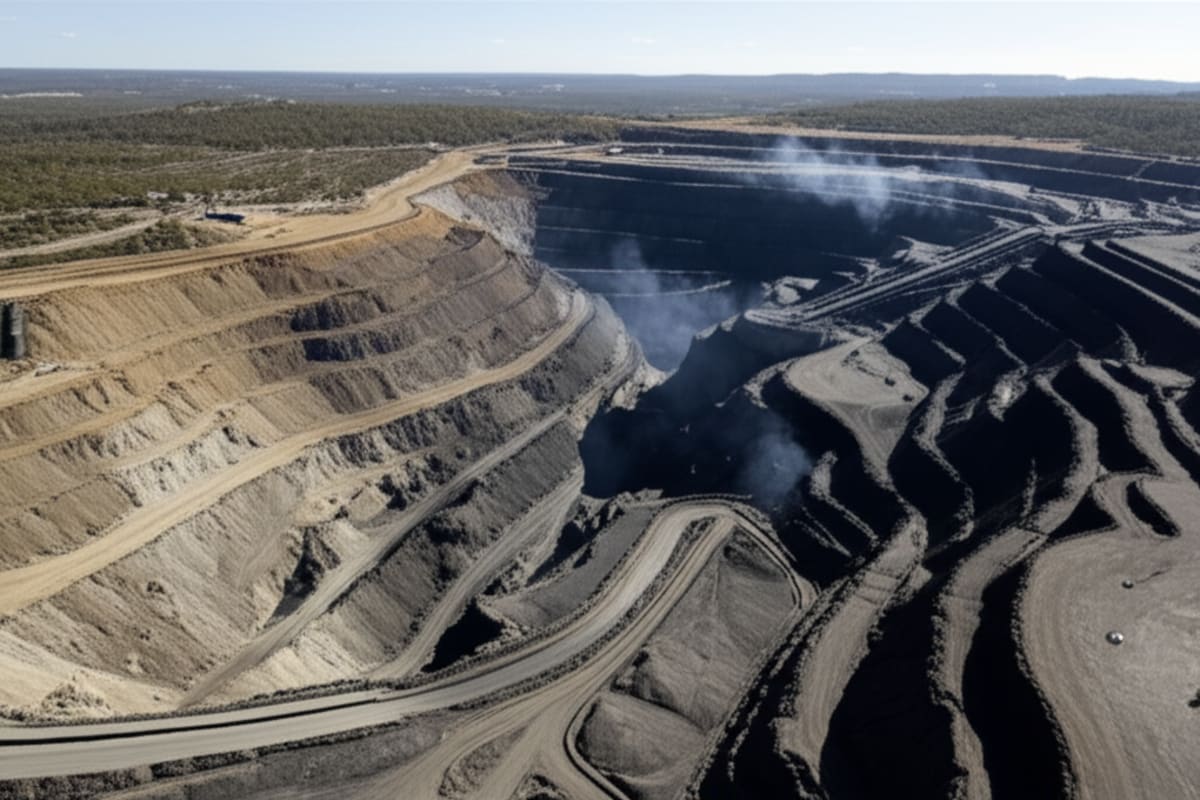130,000 Coal Boreholes Leak Methane in Australia

Australia's coal industry is facing a burgeoning environmental crisis: the significant release of methane, a potent greenhouse gas, from abandoned coal boreholes
Background
Recent research has uncovered alarming methane leaks from these boreholes, prompting urgent calls for a comprehensive audit
The focus is on over 130,000 boreholes scattered across Queensland and an as-yet-unquantified number in New South Wales
One particularly concerning study highlighted two boreholes leaking methane at a rate equivalent to the emissions of 10,000 vehicles.
This discovery suggests a potentially vast and largely unquantified source of greenhouse gas emissions that is far exceeding previous estimates
Experts now warn that the total emissions from these abandoned boreholes could be equivalent to the emissions from 65 million cars annually
This poses a severe threat to Australia's climate goals and global efforts to mitigate climate change
The Implications for Australia's Climate Commitments
This situation carries profound implications for Australia's commitment to reducing its carbon footprint and upholding its international climate pledges
The Australian government's climate change policies and the nation's international commitments under agreements like the Paris Agreement are directly threatened by this unexpected and substantial source of methane emissions
The sheer scale of the problem, involving potentially hundreds of thousands of boreholes, throws into sharp relief the long-term environmental legacy of past coal mining practices
It underscores the urgent need for robust and effective environmental remediation strategies
Failing to address this issue decisively could severely undermine Australia's ongoing efforts to transition to a cleaner energy future and achieve its binding international climate obligations
Crucial Questions and Challenges
The discovery of these significant methane leaks raises several critical questions that demand immediate attention and action:
The Extent of the Problem
First and foremost, what is the precise extent of the problem.
A comprehensive and rigorous audit of all 130,000+ boreholes in Queensland, coupled with an equivalent investigation in New South Wales, is urgently needed to accurately determine the full scale of methane emissions
This comprehensive audit must involve detailed site assessments, the deployment of advanced measurement techniques, and the establishment of a comprehensive database to track emissions and prioritize remediation efforts effectively
The Cost of Remediation
Second, what are the costs associated with properly plugging and remediating these leaking boreholes.
The financial burden of addressing this complex environmental challenge will likely be substantial, requiring careful planning and strategic resource allocation
Funding mechanisms, including dedicated government investment, mandatory industry contributions from mining companies, and potentially leveraging international climate finance opportunities, need to be carefully explored to ensure the necessary resources are available
Critically, the long-term economic cost of inaction – including further environmental damage, escalating climate change impacts, and reputational damage – must be carefully weighed against the upfront cost of comprehensive remediation efforts
Legal and Regulatory Frameworks
Third, what are the legal and regulatory frameworks governing the responsibility for remediation, and are they adequate to address this challenge.
Clarity is urgently needed on which entities (mining companies, government agencies, or other responsible parties) bear the legal and financial responsibility for plugging these leaking boreholes and mitigating the environmental damage
Stronger legislation, enhanced enforcement mechanisms, and clear lines of accountability may be required to prevent similar environmental disasters from occurring in the future
Lessons for Southeast Asia
For Southeast Asian nations, particularly those rapidly developing and reliant on resource extraction, this situation serves as a stark and cautionary tale
Many countries in Southeast Asia are grappling with rapid industrialization and resource extraction, particularly in the energy sector, often with less stringent environmental oversight than in developed nations
This situation underscores the paramount importance of proactively integrating comprehensive environmental protection and mitigation strategies into all stages of development plans
Investing in robust environmental monitoring programs, enacting stringent and enforceable environmental regulations, and incorporating full lifecycle assessments into all energy projects are crucial steps to prevent similar large-scale environmental damage from occurring
Moreover, transparent and accountable governance is essential to ensure that environmental safeguards are not compromised in the pursuit of economic growth
Global Implications and International Cooperation
The ongoing methane leaks in Australia serve as a powerful reminder of the interconnected nature of global climate change and the transboundary impact of environmental negligence
Methane, a significantly more potent greenhouse gas than carbon dioxide over a shorter timeframe, contributes substantially to global warming and exacerbates climate change impacts worldwide
The persistent emissions from these abandoned boreholes underscore the urgent need for enhanced international cooperation and robust knowledge sharing in managing the environmental consequences of fossil fuel extraction
The Australian experience provides invaluable lessons for other nations in ensuring responsible resource management, implementing effective environmental regulations, and proactively preventing future environmental liabilities associated with resource extraction activities
Collaborative efforts to develop and deploy innovative remediation technologies and best practices are essential to address this global challenge effectively
Conclusion: The Urgency of Action
Ultimately, the immediate and comprehensive remediation of leaking coal boreholes is imperative to mitigate the environmental damage and prevent further escalation of the climate crisis
This requires a concerted and collaborative effort between government agencies, the mining industry, scientific experts, and local communities
Failure to act decisively and allocate the necessary resources will have profound and far-reaching consequences for Australia's environment, its ability to meet its climate commitments, and its standing on the international stage
Addressing this challenge effectively is not only an environmental imperative but also a crucial step in building a more sustainable and responsible future
